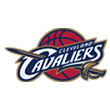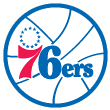Trade Grades: Cavs get all the love
The deal
Cleveland Cavaliers get: Forward Kevin Love
Minnesota Timberwolves get: Guard/forward Andrew Wiggins, forward Anthony Bennett, forward Thaddeus Young and a $6.3 million trade exception.
Philadelphia 76ers get: Luc Richard Mbah A Moute, Alexey Shved, a future first-round pick (Miami's 2015 protected first-round pick)
Cleveland: A

The history of trades involving superstars is clear: The team getting the star almost always wins. This particular trade is somewhat unique because of the quality of the player heading the other direction. In Wiggins, the Cavaliers are giving up the No. 1 pick in what was considered a loaded draft, a player our Chad Ford called one of the 10 best draft prospects of the past 15 years. And this deal should still be a steal for Cleveland.
It was easy to fall in love with the idea of Wiggins growing into the role of LeBron James' sidekick on the wing, taking the tougher defensive assignment and burning teams that put their best defender on James. But the timing wasn't quite right. Based on his translated college stats, Wiggins doesn't figure to be an immediate help on offense. If Wiggins ever does become a Scottie Pippen-type player -- and his performance at Kansas raised serious doubts about his potential to create his own offense at a star level -- it won't be until James is well into his 30s.
The Cavaliers' window to win is now, while James is the league's best player, and Love's versatility makes him one of the best possible offensive complements for the four-time MVP. Further, it's hardly like Cleveland is sacrificing its future by dealing for a 25-year-old player. Health aside, Love is a sure thing, which is something that can't be said of Wiggins. That's why I estimated earlier this offseason that Love's trade value -- the value of his performance minus his likely salary -- was far greater than the value of the typical No. 1 pick.
There is an important caveat to that analysis: It assumes that Love re-signs with the Cavaliers, which isn't yet a sure thing. The risk Cleveland is taking here is that things unexpectedly go south and this becomes a repeat of one of the few trades for a superstar gone bust in recent years: Dwight Howard to the L.A. Lakers. In that scenario, giving up Wiggins would be a disaster for the Cavaliers.
Love must hit free agency rather than signing a contract extension to maximize his salary, and it doesn't appear he'll opt in to the final season of his contract (2015-16) as part of the trade, which would have given Cleveland some more comfort and certainty about keeping him. Still, the odds of Love leaving a team that has James appear long, and this is a small risk the Cavaliers absolutely should have taken.
Beyond Wiggins, Cleveland sacrificed relatively little. The Cavaliers still have their 2015 first-round pick, as well as one on the way from the Memphis Grizzlies at some point in the future.
As for Bennett, it's unclear whether he's an asset or a liability in this trade. The issue is Bennett's salary, which is $5.5 million this season and $5.8 million in 2015-16 (a team option) before jumping to $7.3 million in 2016-17, another team option that must be picked up by the end of October 2015. To justify midlevel money or better, Bennett will have to improve massively from his below-replacement play as a rookie. His college play and a solid performance in this year's NBA Summer League offer reasons for hope, but it's far from certain Bennett will play out his rookie contract.
And that's it. Cleveland didn't have to take back any salary or give up any of the nonguaranteed contracts acquired in a trade with the Utah Jazz last month, giving general manager David Griffin some trade options as the Cavaliers continue to fill out their roster and search for the rim protection and perimeter defense they're currently lacking. As a result, this trade looks great for Cleveland.
Minnesota: B-

The first way to analyze this trade is to decide whether it makes the Timberwolves a better team going forward, and the answer is it does. If Minnesota had a chance to retain Love with a playoff run, keeping him was the right idea. But the relationship between player and team seemed to deteriorate beyond repair this summer. Failing that, there's no way one year with Love, which might have resulted in a playoff berth but would not have guaranteed one, is worth more than four years of Wiggins' rookie contract plus his rights thereafter.
The second way to analyze this trade is whether it's the best the Timberwolves could have made, and that's a bit trickier. A deal centered on Wiggins is the best package Minnesota could have gotten because of the aforementioned rookie contract. A David Lee- Klay Thompson trade would have given the Timberwolves just one year of Thompson's rookie deal before he gets a huge raise -- likely to the point of overpaying -- and while the Chicago Bulls might have been able to offer more total talent, they couldn't match the long-term upside of Wiggins.
Ultimately, it doesn't appear Flip Saunders could credibly leverage the threat of other offers into Cleveland concessions beyond Wiggins. This incarnation of the trade doesn't save Minnesota any money and gives it no draft picks.
What are left are two Timberwolves teams. There's the youngsters: Wiggins, Bennett, first-round pick Zach LaVine, and 2013 first-round picks Shabazz Muhammad and Gorgui Dieng. There's also an older core built of players such as Kevin Martin (31 years old) and Nikola Pekovic (28) built to win now. Though Young (26) is closer in age to Dieng (24) than Martin and Pekovic, his salary and possible free agency next summer put him in the latter group.
Understandably, there's not much of an appetite for rebuilding in Minnesota, home of the longest playoff drought in the NBA (a decade and counting). And Saunders didn't name himself head coach just to develop young talent. Alas, wanting to make the playoffs isn't enough, especially in the Western Conference. The West is too strong and the drop from Love to Young is too severe for a run at the eighth seed to be more than a long shot.
When the Timberwolves realize they can't compete, they'll find it difficult to get value for the veterans who make little sense on a rebuilding roster. Martin has three years and more than $21 million left on his contract, while Pekovic is owed nearly $48 million over the next four years. Minnesota has a better chance of landing a pick for Young, if not necessarily a first-rounder as good as the the team might regret sending to Philadelphia.
The Timberwolves don't need to completely tear it down. They do need to make sure their young players have enough opportunity that Minnesota can figure out what it has beyond Wiggins and point guard Ricky Rubio. This is clearly an entertaining group of young talent, albeit one with more questions than answers about its future -- especially in the case of Bennett. But that was inevitably the case as the Timberwolves move on from Love.
Philadelphia: B+

After getting little value for Spencer Hawes and Evan Turner at last year's trade deadline, Sam Hinkie didn't wait as long to make a move with this year's potential free agent. Young, who can opt out of the final season of his contract (scheduled to pay him $9.9 million) next summer, was the last key player left from the pre-Hinkie Sixers, making the teardown of the roster complete.
Young is a better player than Hawes and Turner, and I'm surprised no contender was more aggressive in making a move for him. But Philadelphia still managed to get two interesting pieces in return. Miami's 2015 first-round pick is top-10 protected, meaning there's an outside shot that if the Heat just miss the playoffs, the Sixers could get a late lottery selection. That's certainly a possibility depending on Dwyane Wade's health and just how many of Miami's weaknesses James was really covering up.
For all the issues I outlined with Bennett earlier, he would have been a perfect fit for a Philadelphia team that needn't worry about the salary cap for years. So this trade looked better when we thought the Sixers were getting Bennett instead of the expiring contracts of Mbah a Moute and Shved. The former will be valuable to Philadelphia primarily as a veteran mentor for fellow Cameroonian Joel Embiid. At 25, with a solid international track record, Shved does offer a bit of upside. However, he's gone backward during two seasons in the NBA. Even if Shved does break out for the Sixers, they'd have to pay him as a restricted free agent next summer, making him less useful than a player on a rookie contract.
Replacing the productive Young with -- well, I'm not exactly sure who's going to get those minutes -- means Philadelphia is likely to be no better than last season, even with the addition of Nerlens Noel and development of young players. With Embiid and Dario Saric waiting in the wings, along with another top lottery pick in the 2015 NBA draft, there's hope for the Sixers' future. But getting there is going to entail suffering through at least one more season as a laughingstock, and the 76ers can't count on the good luck in close games that helped them win 19 games in 2013-14.